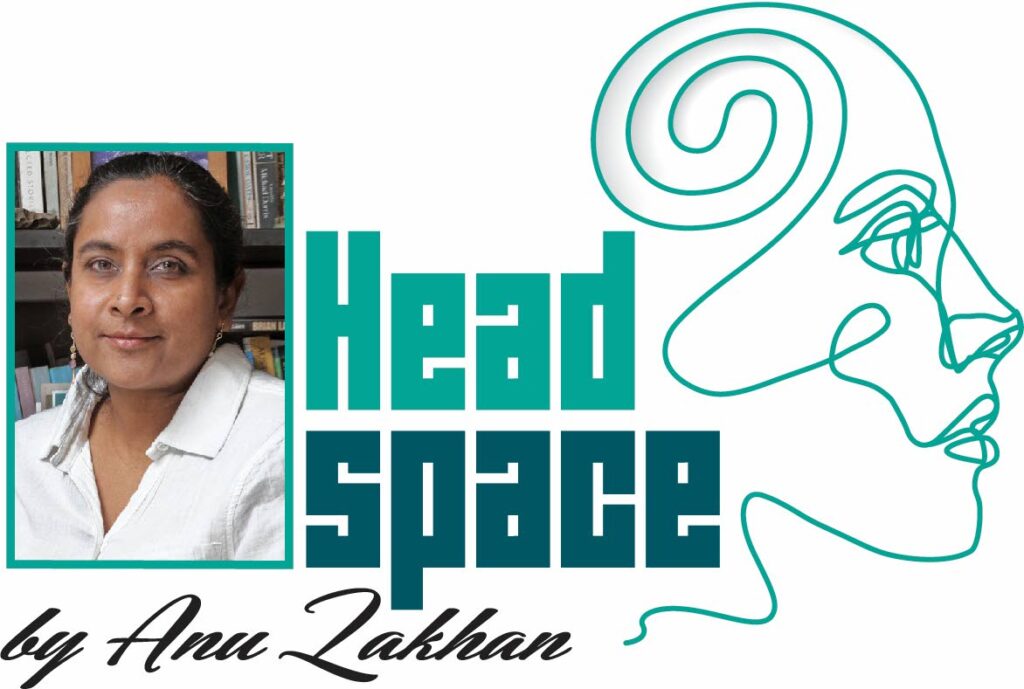Commentary Newsday

Just because you accept something does not mean you like it. You are under no obligation to like it. That is why it is called “acceptance” and not, say, “appreciation,” or “birthday cake.” Something is proffered and you allow yourself to take it. That is all.
A diagnosis concerning your mental health can be troubling. Perhaps you had no expectation of such news coming your way. Maybe you were hoping whatever ills you were experiencing had something to do with an inner-ear infection or one of those neurological side effects of covid we’ve been hearing about.
For others, a diagnosis that involves their mental well-being is a relief. Now you have an explanation. Now you can begin treatment. Now you know.
I know there are people who don’t want to know if their brain chemistry is off. There are also people who don’t want to know if they have cancer or a heart condition. To these people, I mostly want to ask: “Why?”
Why not know? Why wander in ignorance and denial? Why deny yourself and those around you the chance to come to terms with why-you’re-being-the-way-you’re-being? Why don’t you want help?
Acceptance does not have to be gracious or grateful. Begrudging acceptance is popular across a range of life situations – from a loan you wish you didn’t need to a clinical diagnosis.
Nor does acceptance mean “lie down and die.” There is, especially for issues of both physical and mental health, acceptance and all-out war. Rage against the disease. Rage against death or delusion. Rage against side effects of terrible treatments and drug regimens.
But first, you say: “Yes, this is a thing that is happening to me.” Then, to arms!
For many people suffering from everything from dysthymia to dementia, every day is a struggle. Every day brings a battle for balance and normality, often while trying to fulfil obligations of work or to family; engage with people familiar and unknown; often trying to do all things with a smile and without anyone suspecting the inner battle.
This last one is a big deal for most of us. One of the most common references in literature on accepting a new or revised mental-health diagnosis is the part stigmatisation still plays in how we receive and process the news.
The information is one thing: good, bad or indifferent, it’s your news and you have to sit with it and figure out what to do with it. I mean “have to” in the loosest possible interpretation. The truth is, many people do not spend any time with it at all. The information they’ve received may be dismissed out of hand, disbelieved, trivialised.
We’re still so quick to believe that mental problems are not part of our lives. In this equation we are – in no particular order – people of colour, people not from the US or other developed countries, working-class or unemployed people, people with no family or personal history of mental disease. The list is long; much longer than I’m leaning into here. If I’ve heard so many of these not-us-reasons that it’s become painful, I can’t fathom what the doctors hear.
The Haitian writer Edwidge Danticat addressed things like depression, eating disorders and phantom pain syndrome in her early books in the mid-nineties. But those things don’t happen to people like them, her characters kept insisting to each other.
They were poor, starvation-level-poor. How could they be anorexic? They knew the value of food. And yet we know that it is possible, through stories like Danticat’s and science and research.
And they couldn’t be depressed because look how lucky they were to escape Haiti and move to a country where they could get jobs and money.
You see how this can be replicated and stretched to suit just about any situation or diagnosis.
For a people, and we too are such people, steeped in both religion and superstition, we want to believe there is a non-medical reason. I would not deny anyone their right to believe in either ghosts or the Holy Ghost, but it is a bit of a problem when it stops you from getting help for you or someone you love.
Acceptance has to do with accepting our somewhat broken selves. Our imperfections. We need to not feel guilty that we are not living up to the demands of work and world every single day. I’d say that’s something we need to work on in general – all of us, both the sound and compromised of mind.
You’re still you, no matter what condition you may find yourself diagnosed with. You were you before and you’ll keep being you.
But maybe you’ll be able to take better care of yourself if you’re being honest about what’s wrong.
Remember to talk to your doctor or therapist if you want to know more about what you read here. In many cases, there’s no single solution or diagnosis to a mental health concern. Many people suffer from more than one condition.
"accept" - Google News
January 02, 2022 at 12:24PM
https://ift.tt/3EG4wuU
The serenity to accept - TT Newsday
"accept" - Google News
https://ift.tt/2YsXkRf
https://ift.tt/3d2Wjnc
Bagikan Berita Ini














0 Response to "The serenity to accept - TT Newsday"
Post a Comment